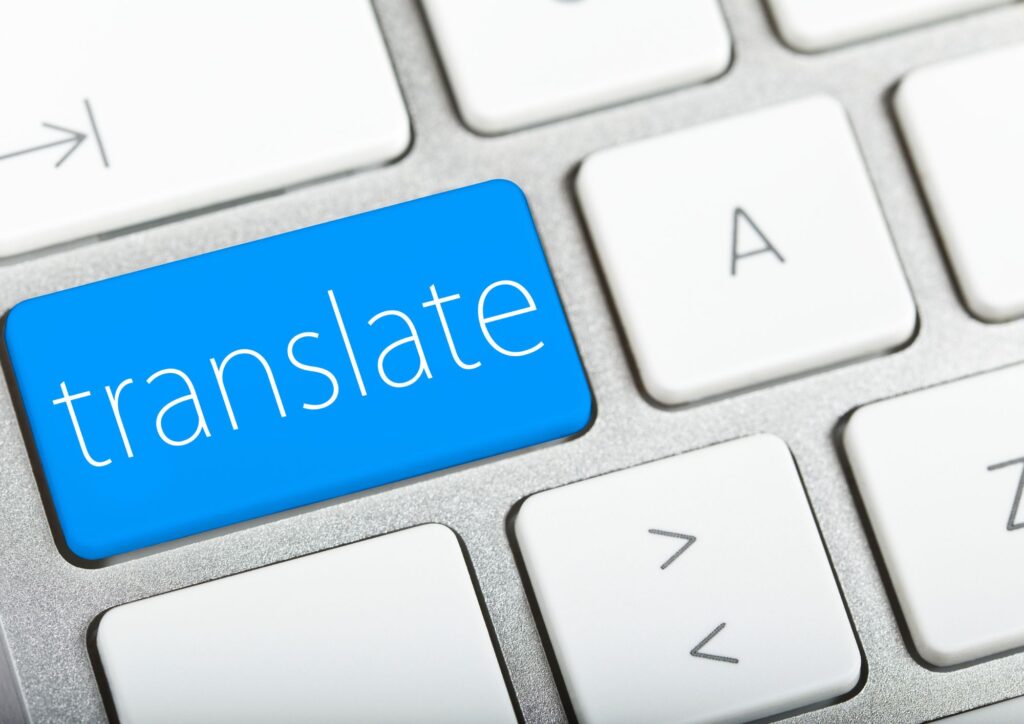Comprendre la importància de les traduccions jurades amb finalitats legals, d'immigració i acadèmics
Quan es tracten qüestions legals, la precisió i la legalitat són primordials. Tant si esteu navegant per les complexitats de la immigració, gestionant documents oficials per a negocis o tractant amb els expedients acadèmics, tenir documents traduïts correctament pot fer o trencar el vostre cas. Els serveis de traducció certificada garanteixen que els vostres documents compleixen els estàndards legals i poden ser reconeguts per autoritats, tribunals i altres institucions. En aquest article, explorarem el paper de serveis de traducció certificada i per què són essencials a l'hora de tractar amb documents legals.

Què són els serveis de traducció certificada?
Els serveis de traducció certificada impliquen la traducció d'un document per a traductor professional que proporciona una declaració signada que verifica l'exactitud i la integritat de la traducció. A diferència de les traduccions no jurades, les traduccions jurades tenen la garantia que la traducció del document compleix els estàndards exigits per a l'ús legal o oficial.
- A traducció certificada assegura que el contingut està traduït fidelment, amb atenció a la terminologia i els matisos legals.
- El traductor ha de ser qualificat i dominar tant l'idioma d'origen com el de destinació, garantint la precisió i el compliment de les normes legals.
- Traduccions jurades solen anar acompanyades d'un certificat que confirma l'exactitud del treball i pot incloure les credencials del traductor.
Aquests serveis són crucials per als documents legals, ja que ajuden a evitar malentesos o possibles disputes legals derivades de traduccions incorrectes.
Quan es requereixen traduccions jurades dels documents legals?
Hi ha diverses situacions on serveis de traducció certificada són essencials. Els documents legals, especialment els utilitzats en contextos internacionals, s'han de traduir amb precisió per garantir la seva legalitat i eficàcia. Els següents són escenaris habituals que requereixen traduccions jurades:
- Contractes: Ja sigui per a acords comercials o contractes personals, les traduccions jurades garanteixen que totes les parts implicades entenguin completament els termes i condicions.
- Expedients judicials: És possible que els documents legals com les peticions, les mocions i les sentències s'hagin de traduir per a casos internacionals o transfronterers, i sovint es requereix una certificació perquè els documents siguin acceptats pel tribunal.
- Documents d'immigració: Moltes autoritats d'immigració requereixen traduccions jurades de certificats de naixement, certificats de matrimoni o altres documents legals per a les sol·licituds de visat i ciutadania.
En aquests casos, una traducció compulsada garanteix que el document no només és lingüísticament precís, sinó també legalment vinculant.

La importància de les traduccions jurades dels documents d'immigració
La immigració és una àrea on la precisió de les traduccions pot afectar significativament el resultat d'una sol·licitud. Les traduccions jurades dels documents d'immigració garanteixen que les credencials i les dades personals del sol·licitant es transmetin correctament.
Molts països requereixen traduccions jurades de documents, com ara certificats de naixement, llicències de matrimoni o prova de feina per als visats. Aquestes traduccions han de complir normes legals específiques per ser acceptades per les autoritats d'immigració. A més, quan sol·liciteu la ciutadania, calen traduccions precises dels documents. Serveis de traducció certificada assegura que aquests documents seran reconeguts per les autoritats. Tenir traduccions certificades professionalment assegura que el procés d'immigració es desenvolupa sense problemes i que els documents del sol·licitant compleixen les normes legals.
Traduccions jurades de documents acadèmics i oficials
En el món acadèmic, sovint es requereixen traduccions jurades per garantir que les credencials acadèmiques i altres documents oficials siguin reconeguts internacionalment. Per als estudiants que sol·liciten estudiar a l'estranger o professionals que busquen validar les seves qualificacions en un altre país, serveis de traducció certificada són essencials.
- Transcripcions: Les universitats i les institucions educatives sovint requereixen traduccions certificades dels expedients acadèmics per garantir que compleixen els estàndards locals.
- Diplomes i graus: Quan sol·liciteu feina o estudis superiors a un país estranger, una traducció certificada garanteix que la institució estrangera entén les qualificacions i qualificacions del sol·licitant.
En proporcionar traduccions jurades, les institucions educatives i els empresaris poden confiar en l'exactitud dels documents acadèmics presentats.
Com els serveis de traducció certificada garanteixen la precisió i el compliment legal
Un aspecte crític de la traducció certificada és el procés rigorós que garanteix tant la precisió lingüística com el compliment legal. Per garantir que una traducció compleix els estàndards legals, normalment s'han de seguir diversos passos:
- Traductors experts: Els serveis de traducció certificada compten amb traductors altament qualificats amb experiència en els dos idiomes i terminologia jurídica especialitzada.
- Compliment legal: La declaració del traductor garanteix que la traducció compleix els requisits específics del país o institució que rep el document.
- Atenció al detall: Sovint, els documents legals inclouen formats, dates i termes específics que s'han de representar amb cura en l'idioma de destinació.
Aquesta atenció al detall garanteix que els documents traduïts compleixin els estàndards dels tribunals, les autoritats d'immigració i altres organismes oficials.

La traducció certificada és vital per garantir que els documents legals, la documentació d'immigració i els expedients acadèmics estiguin traduïts amb precisió i legalment vàlids. Tant si estàs tractant amb contractes, sol·licituds de visat o credencials acadèmiques, serveis de traducció certificada ajudar a eliminar el risc d'errors que podrien retardar els processos o causar problemes legals. Si utilitzeu traductors professionals experts en terminologia jurídica i requisits documentals, podeu assegurar-vos que els vostres documents siguin traduïts amb precisió i reconeguts per les autoritats rellevants de tot el món.


